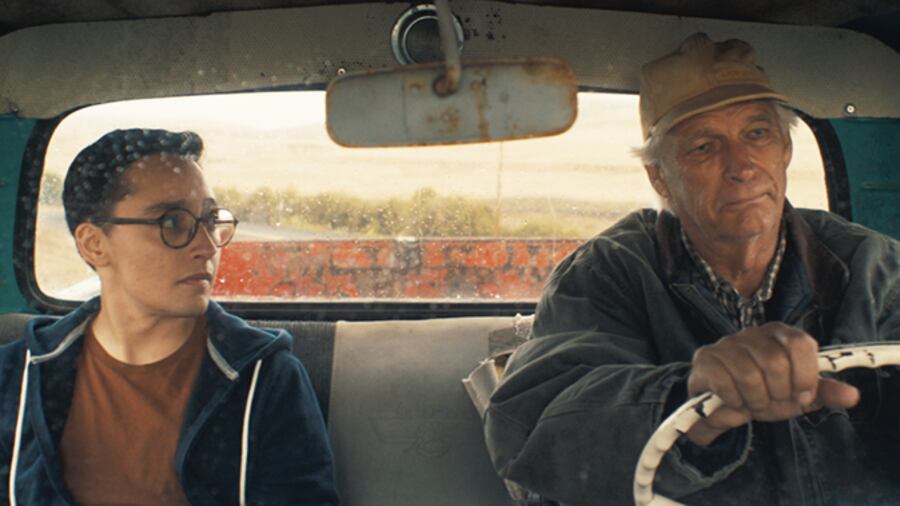In France Michelle Is a Man's Name opens on a butt. Seen via sustained tracking shot, it's a butt of unremarkable shape—attached to a trucker, resting in denim—walking a pair of legs into a gas station restroom.
"[That] was based on the Western shot of the guy with the holster, but…you don't realize you're just staring at Clint Eastwood's ass the whole time," says writer-director Em Weinstein, who filmed their sophomore short in The Dalles, Tygh Valley, Dufur and Portland last September and will see it premiere at Los Angeles' Outfest on Aug. 27.
Once in the restroom, the trucker squares up to a urinal, and there's a brief but banal moment of frontal nudity. Meanwhile, our protagonist Michael (Ari Damasco), a transgender man, exits the restroom, walking past the trucker, and the actual plot begins. Whose body the audience saw right there says a great deal.
"It's not that I wanted to objectify [the truck driver] but just turn the gaze around a bit," Weinstein says. "This is also a body in the way all these other bodies are."
Simultaneously, Weinstein subverts expectations, demystifies a politicized space and waves the audience along toward the more important parts of this character study—Michael revisiting his childhood home in the rural West.
"I think one of the peculiarities about being a cis male person, or a masculine person in the world, even myself, is you're so rarely…objectified," says Weinstein, who was raised half their childhood in The Dalles, writes and directs theater in New York City, and identifies as nonbinary.
Mostly, In France traces a trans homecoming, parsing what Weinstein describes as the "very vast gap" between acceptance from a parent versus being truly seen. Gestures of support can be ill-conceived, like when Michael's father (Jerry Carlton) orchestrates a bonding trip, filmed at Portland's famous Mary's Club.
"So many of [Ari's and my] experiences have lived somewhere in those messy attempts of a parent to understand their child," Weinstein says. "I suppose the sad doomed fate of any parent is that they're going to misunderstand their child."
Weinstein's prior short film, Candace, which won Best Film in the American Pavilion Emerging LGBTQ Filmmakers Showcase at 2018's Cannes Film Festival, also ripples with personal history, but In France marks an escalation in cinematography, scale and deftness of storytelling. Among its best qualities is the ability to layer commentary, while never painting over Michael as a character. As for the lead performance, Damasco plays Michael with a tender composure, the hardest kind to maintain because family is involved.
There are glimmers of hope for Michael's parents, just as the redder parts of Oregon treated Weinstein and their "very queer, very trans" film crew with overwhelming hospitality. Even in vulnerable circumstances—like say, a 6 am announcement in a Tygh Valley diner that you really need to borrow someone's vintage pickup for shooting that day—the surprises were positive.
"We found the truck from this really sweet guy who owns a repair shop," Weinstein says. "That was the entire experience: people coming out of the woodwork and lending a hand, being helpful and tolerant. It gave me a lot of hope."
If the future keeps unfolding as kindly as it did during the making of In France, Weinstein could become a returning Oregon filmmaker. Weinstein is developing a TV pilot they say they'd love to shoot here. Plus, there's a feature-length draft of In France in the works, building on Western road trip elements and a father-son rescue mission. For the time being, Weinstein is back on the East Coast, but Oregon continues to beckon.
"I remember being a freshman in high school and not even knowing I wanted to be a filmmaker," Weinstein says, "but still imagining the films I wanted to make about Oregon."
SEE IT: In France Michelle Is a Man's Name streams at outfest.org through Aug. 30.
